Before returning to China, Feng Gensheng was an emeritus professor at the University of California, San Diego (UCSD) – one of the leading medical education and research institutions in the United States.
In 2023, he received a salary and benefits package of $435,283 per year (approximately 11.4 billion VND). However, he decided to leave this position to join the Shenzhen Bay Laboratory (SZBL) and take on the role of Director of the Cancer Research Institute, according to the South China Morning Post.
He stated, “I am officially joining the Shenzhen Bay Laboratory. Of course, I will not be retaining my position at the University of California - San Diego. My position ends on July 31, 2025.”
Phung Can Sinh is a world- leading expert in cancer research, focusing on the mechanisms of liver cancer recurrence and immunotherapy.
His most significant contribution was the discovery of a new enzyme called SHP2, which can affect protein stability and regulate the activity of other enzymes. This discovery helped scientists better understand how cells grow, replicate, and differentiate, including cancer cells.

Professor Feng's return is a positive sign for China's ambition to elevate cancer research. (Photo: SCMP)
Recently, his research team also discovered that SHP2 combines with PTEN—an enzyme that plays a role in suppressing tumors—to help prevent liver cancer. A deficiency in both enzymes significantly increases the risk of non-alcoholic fatty liver disease (NASH) and liver cancer. This finding opens up new treatment avenues that do not rely on immune checkpoint inhibitors.
Notably, earlier this year he was awarded the title of Distinguished Professor Emeritus at UCSD. Professor Feng's decision to return to China comes as many American universities face budget cuts, directly impacting research and teaching.
Although UCSD wasn't completely "frozen" like the University of California - Los Angeles (UCLA), it was still severely affected. In April 2025, UCSD President Pradeep Khosla sent a letter to faculty stating that the exact extent of the damage couldn't be predicted, but initial estimates suggested the university could lose between $75 million and over $500 million annually.
Meanwhile, the Shenzhen Bay Laboratory (SZBL) is a research facility established by Guangdong Province and Shenzhen City with the goal of building leading science and technology innovation centers. Professor Feng's joining SZBL and assuming the role of Director of the Cancer Research Institute is a significant step in the development of Chinese medicine, especially in the field of cancer research and treatment.
An inspiring scientific journey.
Feng Gensheng was born in 1961 in Jiashan County, Zhejiang Province (eastern China). In 1978, he passed the entrance exam to Hangzhou University. Initially, under the influence of the renowned mathematician Chen Jingren, he was very interested in mathematics, but eventually chose biology.
After completing the required courses, the two elective courses, Tumor Biology and Immunology, changed his life. He shared: "After studying these two courses, I developed a strong passion for tumor immunology, especially immunotherapy against cancer."
After graduating from Hangzhou University, he received a master's degree in Immunology from the Naval Medical University of the People's Liberation Army of China in 1984. He then went to the United States to study and earned a doctorate in Molecular Biology from Indiana University at Bloomington in 1990.
His discovery of SHP2 was published in Science in 1993, quickly bringing him international recognition and solidifying his academic position in the field of tumor immunology.
Since 1994, he has successively taught and conducted research at many prestigious medical educational institutions in the United States, becoming a full professor at UCSD in 2009.
Chinese media outlets have commented that Professor Feng's return is not only a source of pride for the country's medical community but also an inspiration for young scientists. With his experience and vision, he promises to bring about significant advancements in cancer research and treatment, contributing to improving the quality of healthcare for the nation of over a billion people.
Source: https://vtcnews.vn/giao-su-nganh-ung-thu-tu-bo-muc-luong-435-283-usd-tai-my-de-ve-nuoc-sau-40-nam-ar959892.html



![[Photo] Closing Ceremony of the 10th Session of the 15th National Assembly](/_next/image?url=https%3A%2F%2Fvphoto.vietnam.vn%2Fthumb%2F1200x675%2Fvietnam%2Fresource%2FIMAGE%2F2025%2F12%2F11%2F1765448959967_image-1437-jpg.webp&w=3840&q=75)



![[Photo] Prime Minister Pham Minh Chinh holds a phone call with the CEO of Russia's Rosatom Corporation.](/_next/image?url=https%3A%2F%2Fvphoto.vietnam.vn%2Fthumb%2F1200x675%2Fvietnam%2Fresource%2FIMAGE%2F2025%2F12%2F11%2F1765464552365_dsc-5295-jpg.webp&w=3840&q=75)




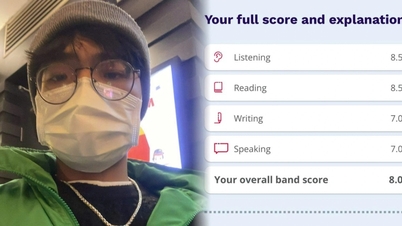



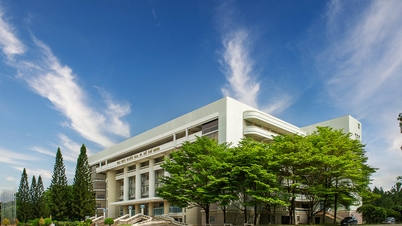






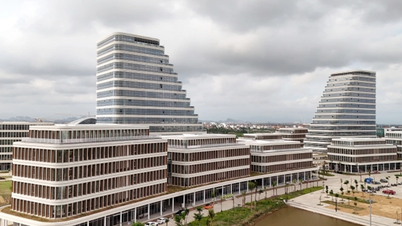
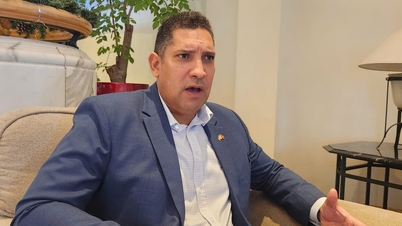

























![[OFFICIAL] MISA GROUP ANNOUNCES ITS PIONEERING BRAND POSITIONING IN BUILDING AGENTIC AI FOR BUSINESSES, HOUSEHOLDS, AND THE GOVERNMENT](https://vphoto.vietnam.vn/thumb/402x226/vietnam/resource/IMAGE/2025/12/11/1765444754256_agentic-ai_postfb-scaled.png)





































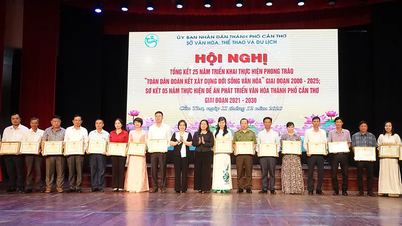















Comment (0)